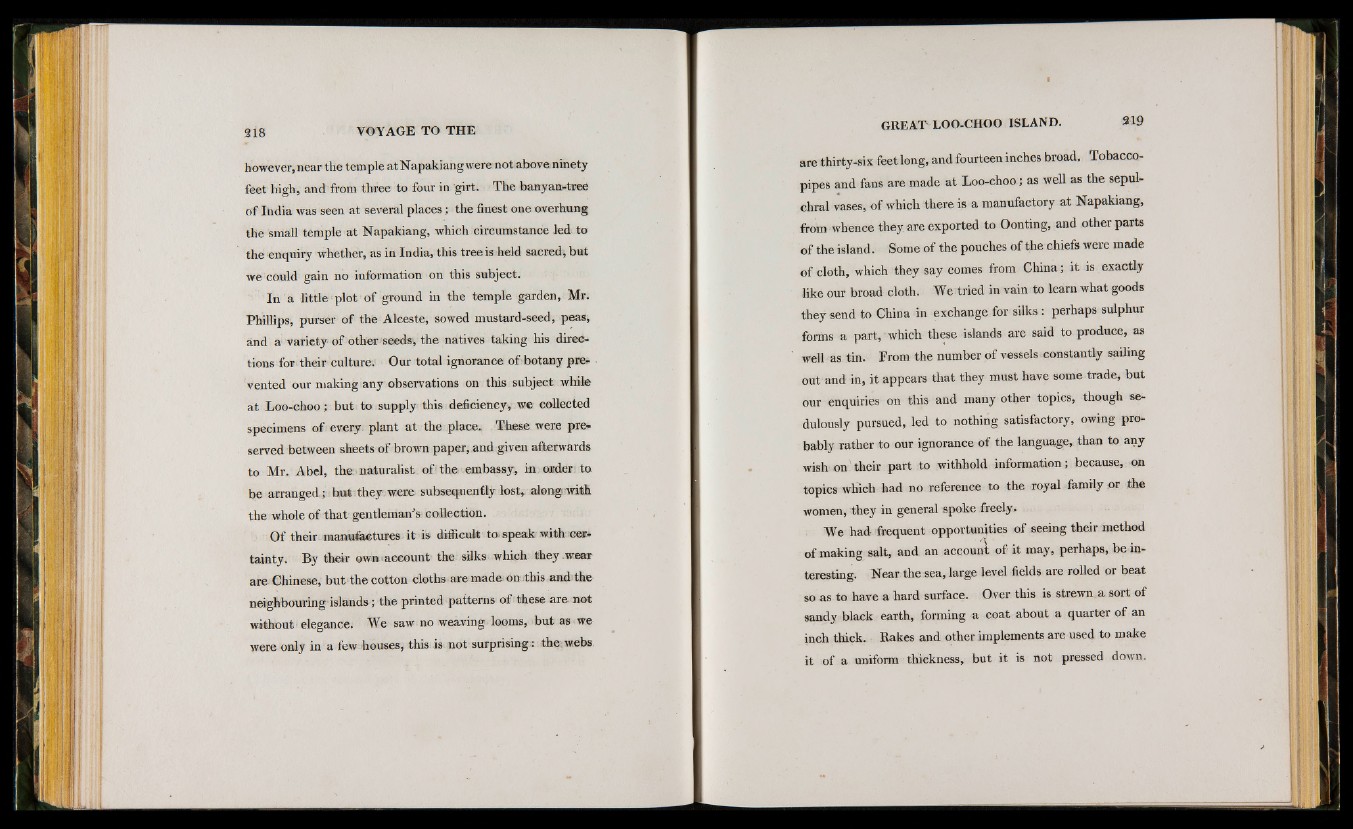
however, near the temple atNapakiangwere not above ninety
feet high, and from three to four in girt. The banyan-tree
of Ihdia was seen at several places; the finest one overhung
the small temple a t Napakiang, which circumstance led to
the enquiry whether, as in India, this tree is held sacred, but
we could gain no information on this subject.
In a little plot of ground in the temple garden, Mr.
Phillips, purser of the Aleeste, sowed mustard-seed, peas,
and a variety of other seeds, the natives taking his directions
for their culture. Our total ignorance of botany prevented
our making any observations on this subject while
a t Loo-choo; but to supply this deficiency, we collected
specimens of every plant a t the place. These were preserved
between sheets of brown paper, and given afterwards
to Mr. Abel, the naturalist of the embassy, in order to
be arranged; : hut they, were subsequently lost, along with
the whole of that gentleman^ collection.
Of their manwfactures it is difficult to. speak with certainty.
By their own account the silks which they .wear
are Chinese, b u t the cotton cloths are made on this and the
neighbouring islands; the printed patterns of these a re not
without elegance. We saw no weaving ■ looms, bu t as we
were only in a few houses, this is not surprising: the webs
are thirty-six feet long, and fourteen inches broad. Tobacco-
pipes and fans are made a t Loo-choo ; as well as the sepulchral
vases, of which there is a manufactory at Napakiang,
from whence they are exported to Oonting, and other parts
of the island. Some of the pouches of the chiefs were made
of cloth, which they say comes from China; it is exactly
like our broad cloth. W e tried in vain to learn what goods
they send to China in exchange for silks : perhaps sulphur
forms a part, which these islands are said to produce, as
well as tin. From the number of vessels constantly sailing
out and in, it appears that they must have some trade, but
our enquiries on tbis and many other topics, though sedulously
pursued, led to nothing satisfactory, owing probably
rather to our ignorance of the language, than to any
wish on their part to withhold information; because, 01 1
topics which had no reference to the royal family o r the
women, they in general spoke freely.
We had frequent opportunities of seeing their method
of making salt, and an account o f it may, perhaps, be interesting.
Near the sea, large level fields are rolled or beat
so as to have a hard surface. Over this is strewn a sort of
sandy black earth, forming a coat about a quarter of an
inch thick. Rakes and other implements are used to make
it of a uniform thickness, but it is not pressed down.